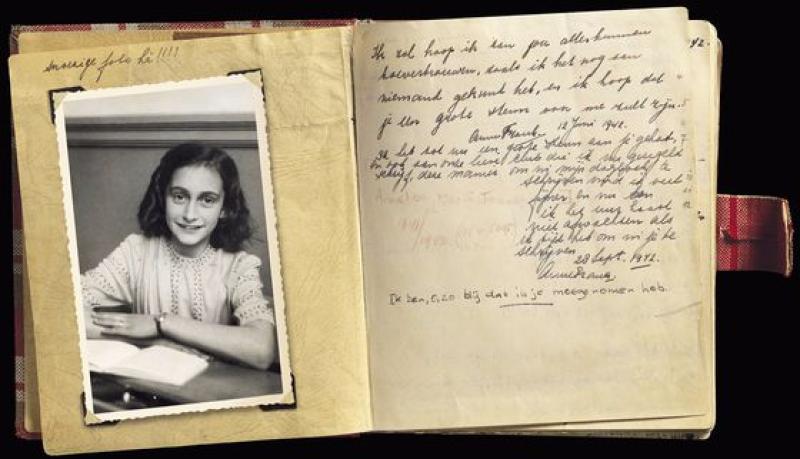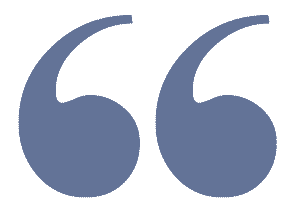Why people are turning to Anne Frank's diary | MNN - Mother Nature Network
Category: Entirely New
Via: tig • 6 years ago • 0 commentsBy: Mary Jo DiLonardo (MNN - Mother Nature Network)



The world is finding hope in her messages of resilience.
 Mary Jo DiLonardo April 15, 2020, 1:21 p.m.
Mary Jo DiLonardo April 15, 2020, 1:21 p.m.
Tweet
 Anne Frank wrote in her diary for two years while her family was in hiding in Amsterdam. (Photo: Hannolans [public domain]/Wikimedia Commons)
Anne Frank wrote in her diary for two years while her family was in hiding in Amsterdam. (Photo: Hannolans [public domain]/Wikimedia Commons)
Spend enough time online during the coronavirus pandemic and inevitably, someone will mention Anne Frank. The references run the gamut, from the flippant and mundane to more poignant messages from those looking for comfort and inspiration.
Born in Germany, Anne Frank was a Jewish teenager who went into hiding from the Nazis with her sister and parents in Amsterdam. From 1942 to 1944, she wrote in her diary about their lives in the "secret annex" where they hid, sharing her fears, hopes and dreams.
After their hiding place was discovered, they were sent to concentration camps. Anne died of typhus at age 15 at Bergen-Belsen concentration camp. Only her father, Otto, survived.
Frank's diary had been saved by one of the people who had helped the family. At first, her father couldn't bear to look at it, but when he finally started reading the diary, he couldn't put it down, according to the Anne Frank House museum in Amsterdam. He published much of her diary and some other writings after World War II. Since then, Frank's work, "The Diary of a Young Girl," has been translated into 70 other languages.
Her insightful words particularly resonate today.
"It's difficult in times like these: ideals, dreams and cherished hopes rise within us, only to be crushed by grim reality. It's a wonder I haven't abandoned all my ideals, they seem so absurd and impractical. Yet I cling to them because I still believe, in spite of everything, that people are truly good at heart."
"The most important part of the diary is that it offers some insight into what it means to be human," Ronald Leopold, executive director of the Anne Frank House, told AFP. "That is exactly why it has remained relevant during the 75 years after the Second World War and why it will remain relevant, I am absolutely convinced, for generations to come."
Frank's diary inspires many
The diary was a gift for Anne's 13th birthday, just days before she went into hiding. She often wrote in the diary to an imaginary friend she called Kitty.
"Writing in a diary is a really strange experience for someone like me. Not only because I've never written anything before, but also because it seems to me that later on neither I nor anyone else will be interested in the musings of a thirteen-year-old schoolgirl. Oh well, it doesn't matter. I feel like writing, and I have an even greater need to get all kinds of things off my chest."
Her stories have inspired many individuals and groups. The Anne Frank Project, based out of Buffalo State College, part of the State University of New York system, uses storytelling for community building and conflict resolution in schools and communities. The group is working to feed and fund students in need during the pandemic, but they're also collecting and sharing stories.
"Our project's namesake reminds us of the power of sharing stories stifled by oppression. While we are not hiding from the Nazis during the Holocaust, we are indeed hiding from an oppressive virus and the multiple uncertainties and insecurities that accompany our forced 'hiding' from the rest of the world," the group writes. "Where would our understanding of the depths of oppression be without the diary of Anne Frank? Where will our understanding of this event be in the future without its stories? AFP will shine a bright light on Buffalo State's multiple important, positive stories throughout the coronavirus pandemic."
Hoping to engage young people during the pandemic, The Anne Frank House has launched a YouTube series that imagines if Frank had used a video camera instead of a diary. The videos show the teenager documenting her time visually in the secret annex. (In some countries, viewers can't watch the series because the copyright has not yet expired for the book in those places.)
Making the comparison
 A photo of Anne Frank hangs in the Anne Frank House museum. (Photo: Greger Ravik [CC BY 2.0]/Flickr)
A photo of Anne Frank hangs in the Anne Frank House museum. (Photo: Greger Ravik [CC BY 2.0]/Flickr)
If you search Twitter and other social media, you'll find many flippant references, comparing what Frank endured to current stay-at-home orders during the pandemic.
These anger Alma writer Sophie Levitt who calls the comparisons "egregiously offensive."
"It is already a hard enough time dealing with the tragedy and consequences of this pandemic. We need to stop worsening it by degrading the memory of Anne Frank to simply the girl in quarantine and stop minimizing the memory of the Holocaust by comparing it to what is currently going on," she writes.
Many other writers are drawn to Frank's resilience and strength.
Val McCullough of Colorado's Loveland Reporter Herald writes, "What helps me is knowing that others have managed horrendous confinements for long periods of time," McCullough writes. "By comparison our 'Stay at Home' is a piece of cake … Anne Frank — a young Jewish teen — comes to mind. Along with family and friends, Anne hid — for two years — from the Nazis during World War II in cramped quarters, hardly daring to make a sound."
Turning to the young teenager at this time in history — "that of the greatest global disruption since World War II — feels natural," writes PJ Grisar in The Forward.
"The context in which she lived was markedly different than now, but people across the world have been primed to consider her legacy at a time of unprecedented moral choices, isolation and fear," Grisar writes. "We naturally seek answers from those with experience, and what Frank has offered for decades is an example of not just tragedy, but also resilience, kindness and grace. Frank's story has always served as essential testimony for times of trouble. So it makes sense that now, maybe more than ever, people are asking what Anne would do."
Why you should write a coronavirus diary
 A man writes on a bench during the pandemic in Mexico City. (Photo: Manuel Velasquez/Getty Images)
A man writes on a bench during the pandemic in Mexico City. (Photo: Manuel Velasquez/Getty Images)
Many historians, therapists and journalists are urging people to document their daily lives through the pandemic. You might already be posting about your unsuccessful grocery outings or Netflix binges on social media, but a written diary of daily feelings and experiences could be invaluable for future generations.
"Official reports, journalistic coverage, and interpersonal correspondence all have their places in the archive, but nothing beats a diary for detailed, personal, and emotional documentation," writes Sarah Begley in Medium.
Today has been quiet, sort of, so far. Take a moment and make some notes about what's happening. Call it your Coronavirus diary, your plague journal, whatever. It's important. Later, you will want a record.
— Ruth Franklin (@ruth_franklin) March 16, 2020
Award-winning biographer Ruth Franklin tweeted the message above in mid-March.
"People tend to think that some random person's daily journal isn't as important as an exchange of letters between two politicians," Franklin told The New York Times. But you don't know what effect your words might have.
"It's incredibly useful both for us personally and on a historical level to keep a daily record of what goes on around us during difficult times," said Franklin, who is the author of "Shirley Jackson: A Rather Haunted Life" and is working on a biography of Anne Frank.
In addition to what it offers for history, keeping a journal is linked to physical and mental health benefits. Most importantly, it can lower your overall stress — and we all can use that right now.
If you need motivation to get started, look to Anne Frank. Her words might inspire you when you sit down with your own blank page:
"I don't think of all the misery but of the beauty that still remains."
"Whoever is happy will make others happy too."
"Everyone has inside of him a piece of good news. The good news is that you don't know how great you can be! How much you can love! What you can accomplish! And what your potential is!"
Mary Jo DiLonardo covers a wide range of topics focused on nature, health, science and anything that helps make the world a better place.
Related on MNN:  Why we should all be journaling
Why we should all be journaling  6 questions to ask yourself daily for a healthier quarantine mindset
6 questions to ask yourself daily for a healthier quarantine mindset  Why phone calls have made a comeback Related topics: Books, Mental Health, Viruses & Diseases Why people are turning to Anne Frank's diary During coronavirus, many are looking to Anne Frank's diary to learn from her messages of resilience and hope.
Why phone calls have made a comeback Related topics: Books, Mental Health, Viruses & Diseases Why people are turning to Anne Frank's diary During coronavirus, many are looking to Anne Frank's diary to learn from her messages of resilience and hope.
